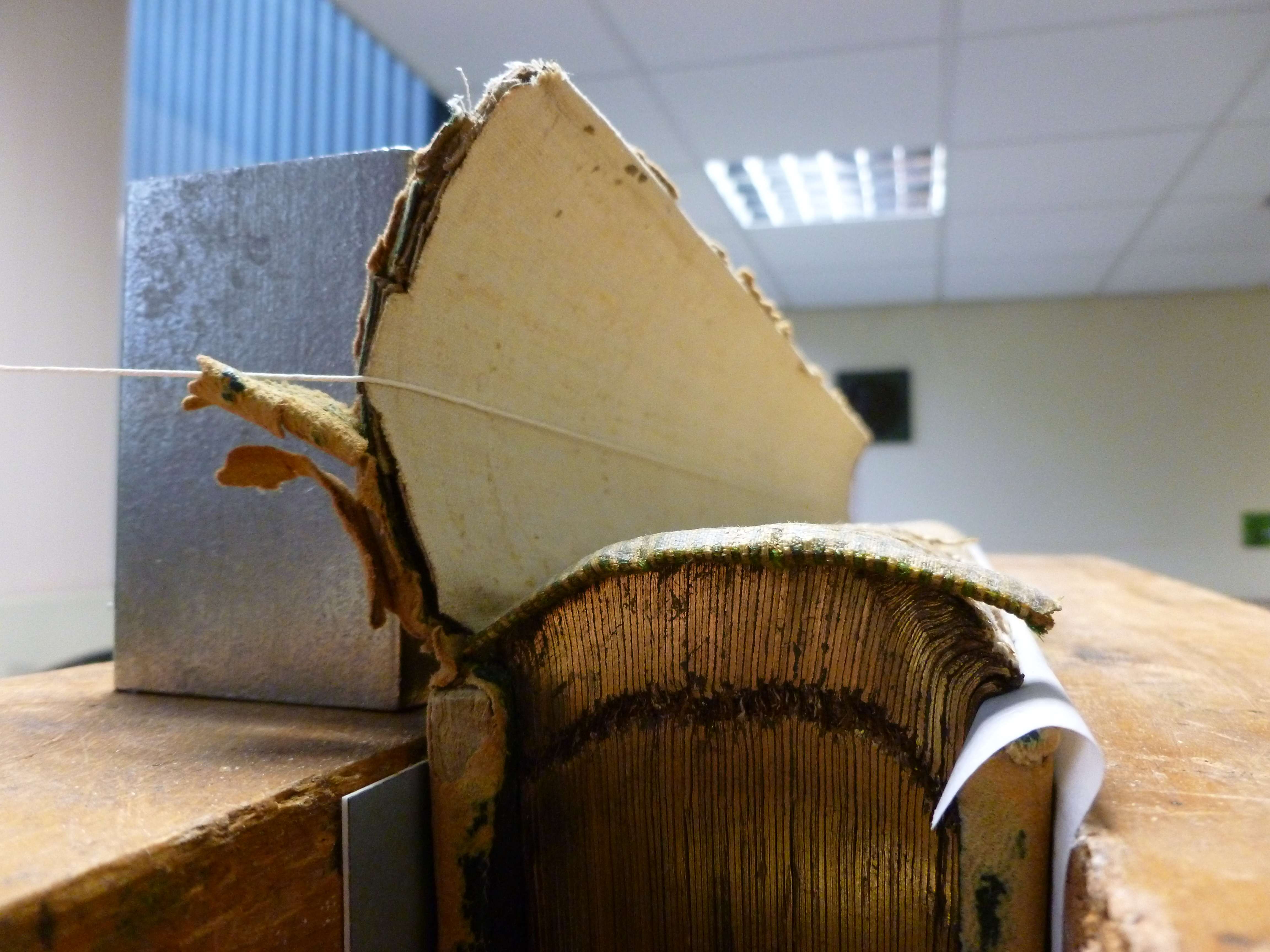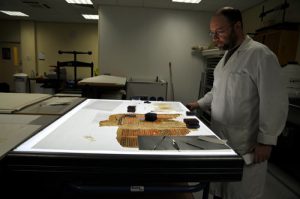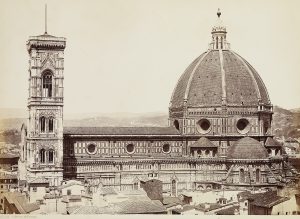
August 3, 2016, by Katherine Beers
5 minutes with… Robert Pearce, Conservator for Manuscripts and Special Collections
Welcome to the latest in our series of Blog posts ‘5 minutes with …’, that introduce staff who work in LRLR at the University of Nottingham. We are a large department of around 250 staff based across all campuses and doing a wide variety of jobs relating to libraries, collections, teaching and learning, and research support. Robert Pearce kindly spent some time telling us about what he does to support our work.
Hello Robert, could you tell us what your job is?
I’m the Conservator for Manuscripts and Special Collections, based at King’s Meadow Campus
How long have you worked at the University?
I started way back in 2000, initially contracted to work on a specific project. I had a bit of a break from the University when I went to work at the Nottinghamshire Archives for a couple of years before returning on a permanent basis as the senior conservator in 2005.
Can you tell us something you have worked on recently?
Our current exhibition is called the “Grand Tourists and Others” which is on display at the Weston Gallery, Lakeside Arts and I have been repairing and preserving Manuscript 317 which is Prince Leopold’s photo album. Prince Leopold was the youngest son of Queen Victoria.
It is a significant document from our collections and important to the exhibition because it was owned by Prince Leopold. It contains incredibly detailed photographs which we have made extensive use of in this exhibition, both in the display running all the way around the exhibition but also in the turning pages displayed on a computer in the exhibition. One of the photographs coincidentally shows a building that the famous local artist Richard Parkes Bonington (1802-1828) painted whilst traveling in Italy (also on display in the exhibition).
If the book hadn’t been important because of who owned it I might have tied a different approach to its preservation, perhaps focusing on preserving the photographs rather than the bound album. The album was then digitised in-house which you can see on the turning the pages display in the exhibition.
Do you work with University students?
As a department Manuscripts and Special Collections are creating a dialogue with students, to discover resources that link to current teaching. Most recently this has involved English Department Undergraduates but will in future I hope include other disciplines.
Can students get work experience in Manuscripts and Special Collections?
Yes they can. It’s really important to get hands on experience if they want to go on into conservation or other heritage profession. For University of Nottingham students, our upcoming project placement opportunities will be advertised within individual schools so students need to keep an eye on what placements their schools offer.
What do the students do?
We recently had three English students on a placement, working on two recently deposited historic parish library collections. The students had to commit to 3.5 hours per week over a period of months to clean and identifying books from the historic catalogue we have of the collections. If you can imagine a group of 1700 books all mixed together, many in poor condition with missing title pages and often written in Latin or Greek then you might have an idea of the challenges the students faced! We feel really proud that at least one of these students has now gone on to get a job working in a very prestigious library in Oxford!
How is the work beneficial?
Handling the books, finding out more about them and their significance as a local historic library collection is really useful. Some of the books they were looking at were early copies of books they had been studying, so as well as bringing an old collection to life they perhaps bring a greater understanding to the student’s studies.
How can people get involved with Manuscripts and Special Collections?
Here is a link to our Volunteering page. We get many requests each year from people of people asking to help and we try hard to involve many people as possible.

Robert Pearce, Conservator Manuscripts and Special Collections
No comments yet, fill out a comment to be the first


Leave a Reply